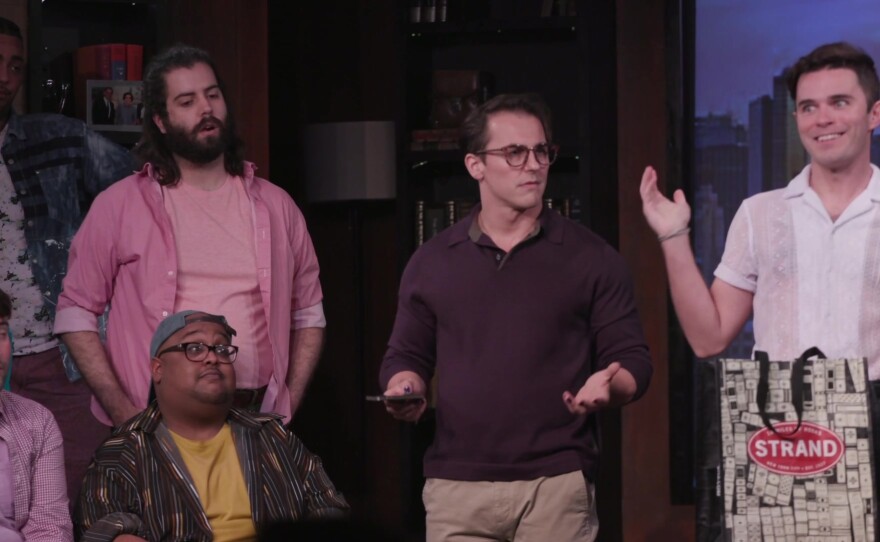TRANSCRIPT FROM VIDEO
PHILLIP CROSBY: Back in the 1990s, when we first started operating return triangle players was one of the only places that a gay or lesbian couple could go on a date. So coming to a safe space and being able to be who you were, as an audience member was hugely important. Richmond triangle players is the longest operating professional theatre in the entire Mid Atlantic region, with a focus on LGBTQ+ works, and developing queer artistry. Every show we do, every show we produce is rooted in that mission.
RAJA BENZ: Being a leading peer institution in the city of Richmond means that we have the opportunity to come across people who may not have seen themselves on stages before welcoming and people who get to see their stories for the first time. And that goes well beyond just a sense of entertainment, but a sense of belonging in community. And so it's particularly thrilling to me as a trans woman of color that I get to watch my own story play out live.
PHILLIP CROSBY: We believe that since this theater is staffed with folks rooted in the LGBTQ experience, there's an authenticity of voice and authenticity of attitude, we can tell the stories because we lived them.
KASEY BRITT: RTP is giving the kinds of roles that people deserve to the people who deserve them. Like it's taken a really long time for roles like that to exist and immediately return title players will find them, pull them and be like quick here,
TeDARRYL PERRY: I think every piece that we do at RTP, as well as the people who are cast and the people who work here in front of house and people who design, there's so much love, and there's so much compassion for people and empathy. We're one team with one goal to represent our community.
PHILLIP CROSBY: I like to think that RTP and organizations like us nationwide, have had a very transformational effect on society. Because of the stories we tell.
RAJA BENZ: Sometimes in the privacy of theater and the privacy of our emotions and our stories, we can really step out and see what it means to be courageous what inclusion looks like, what abolition looks like, what anti-racism looks like. So we're we're sort of rehearsing that in the play. And then we have to take that into our real world,
KASEY BRITT: Especially the content of the shows, making stuff that young people feel they have a voice in, I want to draw them back in and be like this is an important part of how the queer community has always functioned. Come back to the theater,
TeDARRYL PERRY: We are representing a part of ourselves that one for a lot of us had to hide for so long. So to be at a professional theatre doing what we love and being able to celebrate us and our community. It really feels like a like a safe haven.
PHILLIP CROSBY: The LGBTQ community is changing. This theater can support our society in brand new ways. We're just waiting for the material to be written and for the actors to come through our door so that we can tell the stories.







